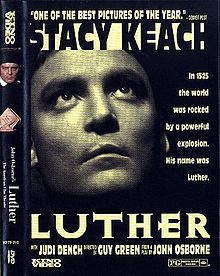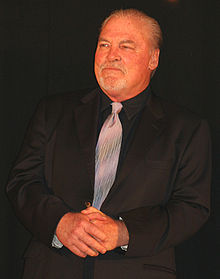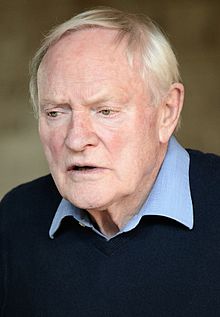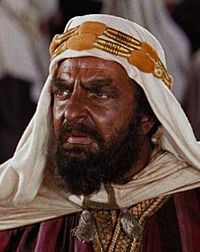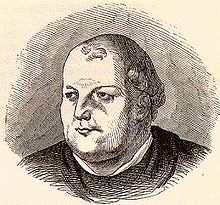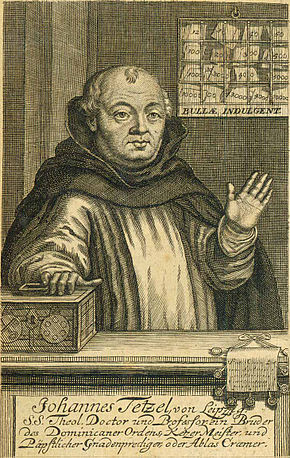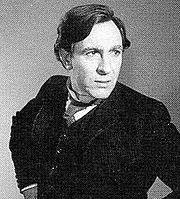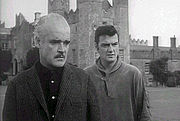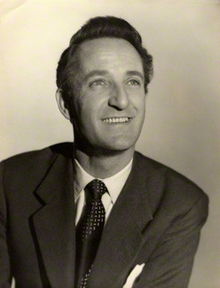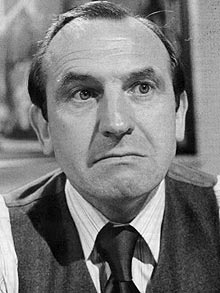Luther (1973 film)
Luther is the 1973 film of John Osbornes biographical play, presenting the life of Martin Luther. It was one of eight in the first season of the American Film Theaters series of plays made into films. It was produced by Ely Landau, directed by British director Guy Green, and filmed at Shepperton Studios, England. The film presents Martin Luther and his legacy for the world to evaluate. The young knight narrator Julian Glover is an everyman character who confronts Luther on his advocacy for the putting down of the Peasants Revolt of 15241526.
To the pealing of church bells, Luther begins to ascend into his pulpit to preach, but he is hindered by stomach cramps. It is 1525 at the time of the Peasants Revolt. He looks out facing the camera and sees a wounded knight wheeling in a hand cart that holds the body of a fallen comrade. The knight sardonically regales Luther with some of his accomplishments but then accuses him of abandoning those who got his reformation for him. Luther denies this, and the knight dips his right hand into his comrades blood and wipes it across Luthers white surplice, telling him he now looks like a butcher. Luther stares silently. The film will return to this scene at this very point after the presentation of all the events of the story that precede it 15061525.The scene shifts to the Augustinian cloister in Erfurt in 1506, when Luther becomes a fullfledged monk of the Order of Eremites of St. Augustine at the completion of his novitiate. Following the vesting of the new monk the young knight takes on the role of narrator and commentator for the rest of the film, explaining that Luther had become a monk to protect his soul from demonic attack and that he sought to outdo his brothers in the counsels of perfection in order to suppress internal murmurings of doubt. Luther is shown serving his brothers in the refectory, cleaning the cloisters latrines, washing the dishes, shivering in cold as he tries to sleep in his cell, and pacing back and forth in prayer. An important line of Luthers at this point is, I am afraid of the darkness and the hole in it ... and theres no bottom to it He is so overwhelmed by his own sinfulness that he all but bursts open when he is making his confession. In a daily office he leaves the stalls where his brother monks are chanting a psalm, and he collapses in a fit before the altar. The knight reports that he suffered in that way for months but that he was able to cope with his doubts by dropping them from out of his head and into his bowels, i.e., becomi
Source: Wikipedia

